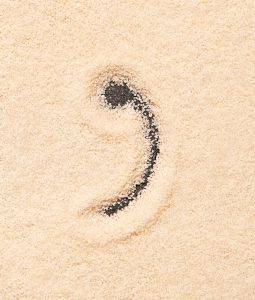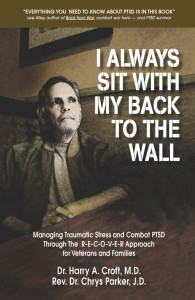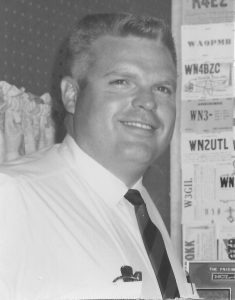Lillie Ammann's Blog, page 65
August 23, 2016
Join Me for a Writers Workshop
 Recently, I’ve been editing for magazines, and my mentor—publisher Cedric D. Fisher—and I are presenting a workshop for writers, especially those interested in magazine writing.
Recently, I’ve been editing for magazines, and my mentor—publisher Cedric D. Fisher—and I are presenting a workshop for writers, especially those interested in magazine writing.
If you’re in the San Antonio area and interested in writing, I hope you’ll join us. The information follows.
INFLUENCE MAGAZINE PRESENTS:
WRITERS WORKSHOP
Some say writing for a magazine is more “artistry than authoring.” If you work for or are currently writing for magazines, aspire to write for magazines, or simply want to improve your writing skills, don’t miss this two-hour presentation by writing/publishing veterans.
Presented by:
Cedric D. Fisher, publisher of San Antonio’s INFLUENCE Magazine, with more than three decades of experience in magazine publishing. Bio: http://www.influencesa.com/press-release/INFLUENCE-MEDIAKIT-2015-16.pdf (page 6)
Lillie Ammann, freelance writer and editor, author of fifteen published books/booklets (nonfiction and fiction) and editor of more than three dozen published books. Bio: http://lillieammann.com/about-lillie-2/
Who should attend:
• Writers who write for magazines or who aspire to write for magazines
• Writers in all genres who want to improve their writing skills and learn more about the publishing industry
Topics:
• Differences between magazine/periodical writing and other media forms
• Writing styles and style guides
• Writers guidelines
• Copyright and plagiarism
• Writing mistakes to avoid
• Q&A (you’re invited to submit your questions with your registration)
Cost & Payment:
• $50 at door (IF space is available)
• $30 in advance/$25 per person in advance for groups of 5 or more registering together
• Pay via PayPal or Credit card: http://influencesa.com/writers-workshop.html
When & Where:
Thursday, September 15, 2016, 6-8 PM
Café Commerce (Downtown Central Library)
600 Soledad Street, San Antonio, TX 78205
For more information or to register,
contact: Cedric Fisher @ 210.763.9674 ▪ moc.asecneulfninull@cirdec
August 17, 2016
The Ubiquitous and Elusive Apostrophe
 After reading my last post about random capitalization, a friend asked me on Facebook to write about apostrophes. Since the apostrophe is such an abused punctuation mark, I agreed.
After reading my last post about random capitalization, a friend asked me on Facebook to write about apostrophes. Since the apostrophe is such an abused punctuation mark, I agreed.
How can the apostrophe be both ubiquitous (everywhere) and elusive (hard to find)? The apostrophe, if not exactly ubiquitous, certainly shows up in many places it doesn’t belong. At the same time it is frequently missing from places it does belong.
There are two major uses for the apostrophe:
To show possession—Add ‘s to singular words and plural words not ending in s: Carolyn’s question, Jane’s purse, the dog’s bowl, children’s teacher, oxen’s yoke. Add an apostrophe only to plural words ending in s: students’ questions, the girls’ purses, the dogs’ bowls, twins’ bedroom.
To indicate missing letters or numerals as in contractions—can’t (cannot), shouldn’t (should not), ’tis (it is), she’d (she had). An apostrophe can also be used in other places where letters or numbers are missing—’98, dancin’.
An apostrophe is used to form a plural only in the rare case of making lowercase letters plural: x’s and y’s. Uppercase letters used as words do not require an apostrophe for their plural form: 3Rs.
The apostrophe and the single quotation mark look the same but have different uses. The single quotation mark is used primarily for quotations within quotations.
The most common apostrophe errors are using them when they aren’t needed, using them in the wrong place in the word, or not using them when they are needed.
Do not use an apostrophe to form plural except in the unusual situation mentioned above (making individual lower-case letters plural). The Johnson family is not the Johnson’s, more than one book is not book’s, and a bouquet of flowers is not flower’s.
Put the apostrophe either before the s or at the end of the word, depending on whether it the word is singular or plural: The secretary’s phone (not the secretarys’ phone), the student’s classes (one student) or the students’ classes (many students), the children’s toys.
Use apostrophes to show possession or to indicate missing letters or words: Tony’s hobby, neighbors’ pets, can’t, didn’t, singin’.
Have you sent other misuses of the apostrophe? Share on social media.
And let me know if you would like me to address special writing mistakes in future posts.
Image: © Depositphotos.com/IntelWond
August 9, 2016
The Plague of Random Capitalization

As an editor, I encounter the same problems over and over again, regardless of the genre or the writer.
One persistent problem is random capitalization. Although this is common from writers of all kinds, I find it most often in business writing. I think it’s part of many corporate cultures, and the people who see and do this every day at work tend to make the same mistake in other kinds of writing as well.
When should you capitalize and when should put the whole word in lowercase?
Names of people and places are almost always capitalized: Jane Doe, San Antonio, Texas. Follow the lead of the individual who lowercases part of his or her name (John de Paul).
Titles are capitalized when they are used with the name—President Obama, but not when they are used generically—the president. Complete titles may be capitalized following the person’s name—John Smith, Chief Executive Officer, but not when used as a description—John Smith, the chief executive officer of the company.
Respectful forms of address—Your Honor, Mr. President, Your Excellency—are always capitalized.
Kinship names—mom, dad, aunt, grandmother—are lowercased unless they are used as part of or in place of a name: Mom, Uncle John, Grandma Sadie (when addressing or identifying the person by that name) but my mom, my uncle, and my grandma.
Names of ethnic or national groups (Americans, Hispanics, African Americans) are capitalized, but colors (white, black) are lowercased.
The names and titles of religious organizations, clergy, and books are capitalized, but generic descriptions are not: All Saints Anglican Church, the church, Pastor Joe, the pastor, The Holy Bible, holy book.
Words like nature, science, success are not capitalized unless they are part of a name or title.
Organizations (corporations, nonprofits, and military) often over-use capitals. They typically capitalize every title down to the lowliest position, perhaps to make the people in those positions feel important. If you are writing something for an organization that follows this practice, you should, of course, follow the company style. However, if you are writing something outside the company, follow the style of the publication or group for whom you are writing. When in doubt, don’t capitalize.
Organizations often capitalize the name of every department, every program, every process…. The best way to determine if capitalizing a word or phrase is appropriate is to determine whether it is an actual name or title of something or simply a description. The Department of Science and Technology is capitalized if that is its actual name, but the science and technology department is not. Zero Defects Quality Control Program is capitalized if that is its proper name, but the quality control program is not.
If you’re not sure about whether to capitalize a word or phrase, ask yourself, “Is this an actual name or title of something?” If so, capitalize. If the word or phrase is just a description, begin the word(s) with lowercase letters.
Image: © Depositphotos.com/Lappenno2
July 19, 2016
Infographic: Advice for New Freelancers
Recently I wrote a blog post with three tips for beginning freelancers. This was part of a project by Invoice2Go to create an infographic with advice for new freelancers from experienced independent workers. Here is the infographic with 20 great tips:
July 13, 2016
Get to Know Yourself: Guest Post from David Grover

Guest Post from David Grover—Get to Know Yourself: 5 Self-Discoveries You Make When Writing a Journal
One of the most powerful and efficient ways to get to know yourself is through keeping a journal. Writing down your deepest inner thoughts is incredibly therapeutic and allows you to gain control of your emotions and to set tasks to achieve your goals.
You might think that keeping a journal is a lot of work for no reward, but the truth is the number of self-discoveries you make while journaling is astounding. Here are five that are worth paying attention to.
1 The things you love
It sounds kind of simple, doesn’t it? Of course, you discover the things you love when you write a journal; you already know them. However, it isn’t as simple as that. One of the benefits of writing a journal is the knowledge that no one but yourself will ever read it, and with that knowledge comes security and the absence of deceit.
When you realize that your journal is just for you, the things that you write become increasingly personal and edge closer to the truth you either hide or play down. This happens because journal writing allows you to let go and permit your subconscious to have an audible voice. You then discover things, people, and places that you love but were unable to realize.
2 The things you hate
Just as you discover the things you love when you write a journal, you also discover the things that you hate. And again it sounds simple, but we tend to bury the things that truly bother us. Writing out your feelings, both positive and negative, allows you to assess and confront any problems you may have in a very positive and healthy way.
3 Your core values
Your core values are what make your personality unique to you, and while we might think we know how we feel or think about certain things, the fact is, until you examine your feelings and intuitions, you’ll never know for sure. That’s where journaling comes in. Keeping a journal and reviewing it from time to time will allow you to see inside of your soul, including your core values, in a way you haven’t before.
4 Your dreams
We all know what our dreams and aspirations are; from the ridiculous to the mundane, we have a good idea of our wants and wishes. When you keep a journal not only do you discover new ambitions, you also figure out a way to make them a lot more tangible.
A great benefit to keeping a journal is reviewing it and taking note of running themes and recurring events. Through doing this you will be able to see where you are going wrong and how to make it right. When you see the details of your life laid out in black and white, you automatically make a conscious effort to change it for the better, including chasing those dreams of yours.
5 Creative sparks
A great self-discovery that is made when keeping a journal is creativity. The act of writing every day tends to light an artistic fire in your belly, and you will discover a talent you never knew you had. Even if you are already quite inventive, the therapeutic nature of journaling relaxes your mind, leaving you free to tap into the creative side of your brain that you may have previously ignored.
Amazing self-discoveries aside, keeping a journal is a lot of fun. It’s a great way to spend your time. Your writing skills improve, and you learn so much more about yourself. So, if you were ever on the fence about keeping a journal, now might be the time to start!
David Grover is a Communications Manager at Timeo, a useful tool for businesses in the UK. He’s also a freelance career coach who’s always eager to share his experience. In his free time he enjoys traveling.
July 3, 2016
Happy Independence Day!

O ETERNAL God, through whose mighty power our fathers won their liberties of old; Grant, we beseech thee, that we and all the people of this land may have grace to maintain these liberties in righteousness and peace; through Jesus Christ our Lord. Amen. ~ Collect for Independence Day, 1928 Book of Common Prayer
Enjoy this patriotic video and the stirring words of “God Bless America.”
Image: © Depositphotos.com/natixa
June 27, 2016
PTSD Awareness Day
 June 27th is PTSD Awareness Day.
June 27th is PTSD Awareness Day.
PTSD affects many people, including individuals who have been assaulted or involved in serious accidents or other life-threatening situations. However, many, many of the people who suffer with PTSD are those who have been traumatized to protect us—soldiers, police officers, and paramedics.
Even if we don’t anyone personally know anyone with PTSD, we should be concerned. Our safety has been ensured by men and women who endured extreme trauma for our benefit.
If you do know someone personally with the condition, I highly recommend the book I Always Sit with My Back to the Wall. I’m proud to say I edited this book for the authors, a psychiatrist and a chaplain/trauma counselor, both of whom have extensive experience. They address the physiological, emotional, and spiritual affects of PTSD, and most importantly, give clear and simple guidance on managing PTSD. Since most of the authors’ experience is with veterans and active duty military personnel, the book is geared for combat PTSD, but I believe anyone experiencing PTSD from any kind of situation would find it helpful.
June 27th is PTSD Awareness Day.
PTSD affects many people...
 June 27th is PTSD Awareness Day.
June 27th is PTSD Awareness Day.
PTSD affects many people, including individuals who have been assaulted or involved in serious accidents or other life-threatening situations. However, many, many of the people who suffer with PTSD are those who have been traumatized to protect us—soldiers, police officers, and paramedics.
Even if we don’t anyone personally know anyone with PTSD, we should be concerned. Our safety has been ensured by men and women who endured extreme trauma for our benefit.
If you do know someone personally with the condition, I highly recommend the book I Always Sit with My Back to the Wall. I’m proud to say I edited this book for the authors, a psychiatrist and a chaplain/trauma counselor, both of whom have extensive experience. They address the physiological, emotional, and spiritual affects of PTSD, and most importantly, give clear and simple guidance on managing PTSD. Since most of the authors’ experience is with veterans and active duty military personnel, the book is geared for combat PTSD, but I believe anyone experiencing PTSD from any kind of situation would find it helpful.
June 20, 2016
Best Birthday Ever
 Fifty years ago today, I started a summer job as a clerk in an engineering office at Kelly Air Force Base. It also happened to be my twentieth birthday.
Fifty years ago today, I started a summer job as a clerk in an engineering office at Kelly Air Force Base. It also happened to be my twentieth birthday.
The boss took me around the office and introduced me to everyone who worked there. The best-looking guy in the office followed us around the room like a little puppy.
Each desk had a nameplate with the employee’s full name, so I could see the name as the worker was introduced to me.
About halfway through the room, Jack—the handsome fellow who had joined our introduction round without an invitation—spoke. “Tomorrow we’re going to take all the nameplates away, and you’re going to have to remember everyone’s name.”
Then he started laughing—and I fell in love. I didn’t think his joke was funny, but I couldn’t resist his laughter. From that moment until his death forty-six years later, he kept laughing and kept me laughing. Even when he was in advanced stages of Alzheimer’s, he never lost his sense of humor. He loved to tell jokes, to hear jokes, and to find humor in any situation. He’s been gone nearly four years, and I still miss his laughter and his love.
I don’t remember if I got any birthday gifts wrapped in pretty paper and bows when I turned twenty, but I got the greatest gift of my life (second only to salvation through Jesus Christ) when I met Jack.
June 14, 2016
Tips for New Freelancers
 If you’re a new freelancer, welcome to the wonderful world of independent business. I’ve been freelancing for more than twenty years, and I can’t imagine working for anyone else. But if you’re just starting out, you may be feeling a little lost.
If you’re a new freelancer, welcome to the wonderful world of independent business. I’ve been freelancing for more than twenty years, and I can’t imagine working for anyone else. But if you’re just starting out, you may be feeling a little lost.
So what does it take to make a success of your new venture? Here are my three top tips:
Understand that you are in business, and you are responsible for everything. Even if you don’t have employees working in a rented or purchased office, you’re selling professional services either to consumers or to other businesses. Your customers, suppliers, and governmental agencies expect your interactions with them to be conducted in a business-like manner. Instead of just writing, designing, or providing administrative support, you also have to do marketing, bookkeeping, and other tasks or hire someone to do them for you.
Make a plan. You can set your own work hours and determine your own workplace. You can run errands, do chores around the house, or enjoy a movie instead of working on your client’s project, but you have to ensure that the work–both client work and marketing/business work–is done on time. Establish a schedule that works for your business, your personal/family commitments, and your own preferences, and deviate from your schedule only when you make a well-informed decision to do so.
Do such a good job that your clients not only give you more work but also tell others about you. Your work needs to be top-quality, but your customer service needs to be even better. If your clients know they can rely on you to understand and meet their needs, you will become their go-to professional in your field. Best of all, you’ll start hearing, “So-and-So suggested I call you. He said you always do a wonderful job for him.”
As a freelancer, you have incredible freedom, but if you want to be successful, you need to balance the freedom with self-discipline.




